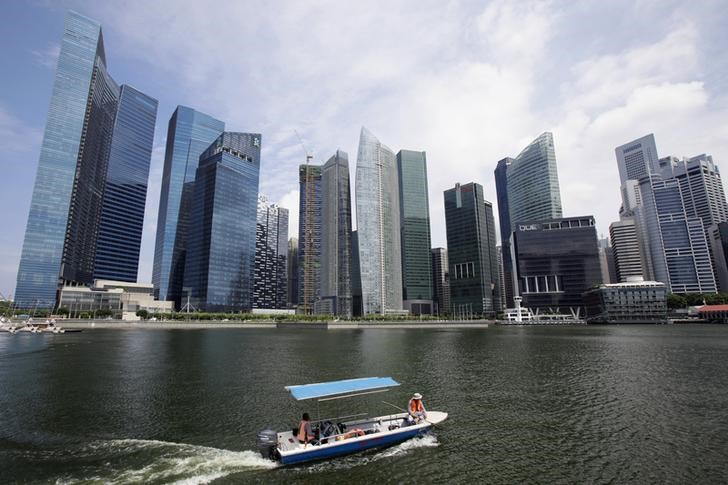(Bloomberg) -- Follow Bloomberg on LINE messenger for all the business news and analysis you need.
Stocks in Singapore appear to be the best-placed in Asia Pacific to benefit from a potential cyclical recovery and success in finding a cure for the coronavirus, analysts say.
Cheap valuations, strong links to the global economy and better control over the virus outbreak are all seen working to the advantage of shares in the city-state, where cyclicals such as financials and real estate command a more than 80% weighting in the benchmark index.
“We rate Singapore one of our most-preferred markets in the region,” backed by “recession valuations” and expectations of an earnings recovery, said Hartmut Issel, head of APAC equities and credit at UBS Global Wealth Management.
Stocks whose fortunes are heavily tied to business cycles are gaining investor attention amid nascent signs of a revival in world trade, some improvement in Asia’s manufacturing gauges and promising updates by drugmakers racing to develop a coronavirus vaccine. Analysts forecast the Straits Times Index to climb about 16% over the next 12 months, versus an 11% gain seen for the broader MSCI Asia Pacific Index.
Top Analyst Bets Big on Small Singapore Stocks On Vaccine Hopes
At about 84%, the weighting of cyclical stocks in the STI gauge makes for the highest exposure among major benchmarks in the Asia Pacific region. That’s even after excluding pandemic winners like technology and communication services. Banks -- 41%, real estate -- 22% and industrials -- 17% are the most dominant sectors.
HSBC Private Banking is betting on dividend-paying property managers as Singapore strives to resume business activities. Meanwhile UBS favors banks, citing their regionalized business model, which means lenders will benefit once economies rebound. Any rise in U.S. Treasury yields will also be a boon for their net interest margins.
Singapore Stocks Shine in Asia Boosted by Rising U.S. Yields
That said, many things need to fall in place for a sustained rebound in the city-state’s shares.
The trade-reliant economy shrank by a record margin last quarter, and the government expects a contraction of 5%-7% this year. While only a handful of daily new virus cases are registered recently, Singapore has faced a tumultuous road coping with the issue, and Trade and Industry Minister Chan Chun Sing last month warned of “recurring waves of infection and disruption.”
The STI was down 0.6% as of 9:21 a.m. local time after the whole economy purchasing managers’ index in August fell further from July.
This year’s steep decline -- the second-worst in Asia Pacific -- has cheapened the valuation of shares. Down 22% so far, the STI gauge is trading at 0.9 times its estimated book value, versus an average of 1.2 over the past decade.
“If there is a rise in global rates coupled with a strong domestic economic and earnings recovery, the Singapore market could do well vis-à-vis the peers,” said James Cheo, HSBC’s chief market strategist for Southeast Asia.
(Adds stock market performance in third-last paragraph.)
©2020 Bloomberg L.P.
